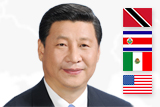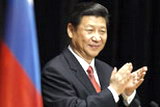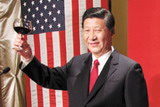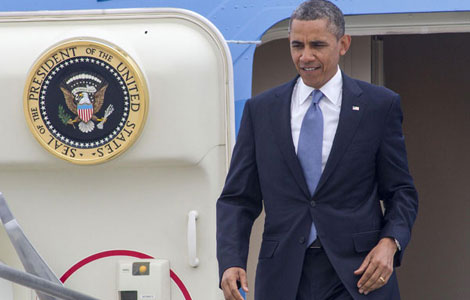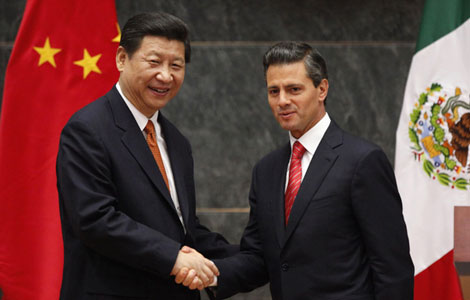
Window of opportunity
Updated: 2013-06-04 02:00
(China Daily)
|
|||||||||
Upcoming talks between Xi and Obama can pave the way for constructing a new type of relationship between powers
In the coming decade China may be able to catch up with the United States in terms of economic scale. This will be accomplished under the leadership of President Xi Jinping, who is due to meet with US President Barack Obama at the Sunnylands estate in Rancho Mirage, California, on June 7-8.
Given China's projected fast development, some existing structural difficulties between the two countries will diminish if not disappear completely in the next 10 years.
However, the two countries face new challenges. These include China's emerging challenge to the US' domination of the so-called Global Commons — space, maritime space and cyberspace. In its Global Trends 2030, the US National Intelligence Council has forecast that the US will no longer be the sole superpower by that time.
Though the US is still the dominant superpower, it is suspicious of China's strategic intent.
Meanwhile, China has been equally suspicious of the US' “pivot” to the Pacific. To Beijing, the US' high-handed rebalancing in the western Pacific has encouraged Manila to change its long-held maritime position and challenge China in the South China Sea. Beijing is also worried that the US' support of Tokyo in its territorial dispute with Beijing in the East China Sea could lead to Japan revising its pacifist constitution, blurring the definition of aggression and threatening the postwar international order.
At a time when increased distrust is surfacing, it is a positive move for the Chinese and US leaders to meet. The meeting is not expected to deliver tangible results, rather it is intended to be a relaxed exchange of their respective views on bilateral trust, regional stability and global trends. The US interlocutors may find that China is preoccupied with its domestic agenda rather than challenging the US, and the Chinese leader will be able to hear the US president's rationale for the pivot to the Asia-Pacific region.
While Beijing and Washington won't reconcile all their differences in two days, they might find some unexpected areas of convergence — Japan's rising nationalism fanned by right-wing political leaders has led to attempts to deny Tokyo's history of aggression and a bid change the pacifist constitution adopted under US supervision after World War II. China and the US also share a great many common interests and similar positions on issues ranging from the nuclear programs of the Democratic People's Republic of Korea and Iran to forging a mutually acceptable code of conduct for cyberspace.
A casual and relaxed summit at Sunnylands without much diploma-tic protocol offers a unique opportunity to catalyze the presidents' personal rapport. Though respective national interests will limit the extent of their exchange, they can start reassessing each other's intent by building up personal trust.
The two presidents have the opportunity to jointly open a window on relations between the two countries and breathe the air of freshly discovered trust.
There has been much talk about building a new type of great power relationship. The zero-sum US-Soviet Union relationship during the Cold War was typical of the traditional type of power relationship with mutual hedging and deterrence. In contrast to this, a new type of power relationship between China and the US ought to cultivate cooperation while not excluding healthy competitive interaction.
The two countries won't be able to avoid competition in almost all areas. But China still has a lot of catching up to do, especially in education, public health and innovation. Even if China is on a par with the US in terms of economic output in a decade, the gulfs between their per capita production and per capita incomes will still remain vast and nearly impossible to be ironed out within this century.
Hopefully the summit in California will build a consensus on respecting each other's core legitimate interests measured against international laws, so as to build an ordered and predictable bilateral relationship.
The author is professor and associate dean of Institute of International Studies, Fudan University.
Related Stories
Xi, Obama to seek new tone at summit 2013-05-31 14:26
Assistant FM outlines upcoming Xi-Obama summit 2013-05-29 23:52
Xi-Obama meet a 'first step' 2013-05-29 17:14
President Xi visits Latin America, meets Obama 2013-05-29 16:43
Schedule
